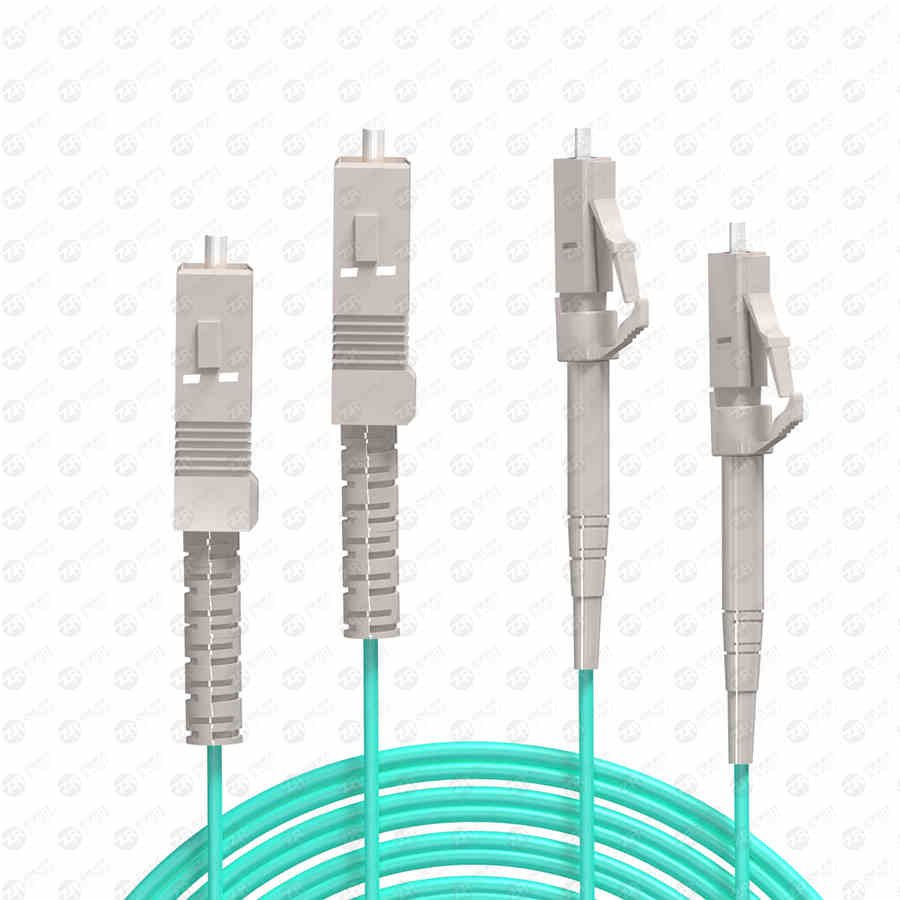What are the differences between fiber patch cords and copper wires?
What are the differences between optical fiber jumpers and copper cables? With the development of the times, optical fibers have gradually replaced copper cables as the mainstream connection equipment. Of course, there are always more or less disputes in the choice of optical fibers and copper cables. Many friends think that the delay of fiber optic lines is shorter than that of copper lines. So, what are the differences between fiber optic patch cords and copper lines?
Fiber Patch Cords and Copper Cables
1. What are the differences between fiber optic patch cords and copper wires?
Optical fiber and copper wire are two common data center transmission media, both of which have anti-interference and good confidentiality, so what is the difference between optical fiber and copper wire? The difference between the two is mainly reflected in the following four aspects:
1. Transmission distance
Generally speaking, the transmission distance of copper wire does not exceed 100m, while the maximum transmission distance of optical fiber can reach 100km (single-mode fiber), which far exceeds the transmission distance of copper wire.
2. Transmission rate
At present, the maximum transmission rate of copper wire can reach 40Gbps (such as Category 8 network cable, DAC passive copper cable), and the maximum transmission rate of optical fiber can reach 100Gbps (such as OM4 optical fiber jumper), far exceeding that of copper wire.

3. Maintenance management
The copper wire crystal head production and equipment port connection operations are very simple, while the optical fiber cutting and welding, equipment connection and other operations require higher requirements and the operation is more complicated.
4. Price cost
In the case of the same length of optical fiber and copper wire, the price of optical fiber is generally 5-6 times that of copper wire, and the price of optical fiber patching equipment (such as optical fiber couplers, etc.) is also much higher than that of copper wire. In terms of price cost, the price cost of optical fiber is much higher than that of copper wire.
2. How about the delay of fiber jumper and copper wire
1. Optical fiber jumper
Because optical fibers are currently used in many applications, let's first take a look at the delay of optical fibers.
Little knowledge of physics, the speed of light in vacuum is 3*10 8 m/s, under air conditions, the speed of light will be slower. Therefore, when an optical signal propagates in an optical fiber link, there are five steps to wait: the electrical signal is converted into an optical signal to generate two; the optical signal is passed through the optical fiber to generate one; the optical signal is converted into an electrical signal to generate two.
2. Copper wire
The signal quality of copper wire is not as good as that of optical fiber, especially in long-distance transmission, the signal is easily interrupted by the surrounding environment. The longer the distance, the more serious the attenuation. It often causes client loss, page errors, and slow user opening speeds.
3. Delay comparison between fiber jumper and copper wire
The delay difference between optical fiber and copper wire Theoretically, the signal is transmitted faster in the copper wire, but in the long-distance demand, the processing and repetition of the signal is less, the delay of the optical fiber will be lower, and the copper wire is vulnerable to the outside world. The interference, the loss is large, and the delay is also larger.
In fact, we do not use delay to describe optical fiber and communication network, but to describe it in terms of distance and speed, and different distances and speeds have different delays. For example, it takes 8ms to serialize a 150-byte data packet on a 1.5Mbps link, but only 1.2us on a 10Gbps link, and the delay will be less at high speed.
For the difference between fiber patch cords and copper wires, I would like to see that my friends here have a certain understanding of this. In fact, the delay difference between optical fiber jumpers and copper cables is affected by speed and distance. In the selection of optical fiber jumpers and copper cables, if the distance is short, we can choose copper cables as the transmission medium. It will be much lower than the fiber jumper. On the contrary, if it is in long-distance transmission, we can choose optical fiber as the transmission medium, and its performance will be more stable.

